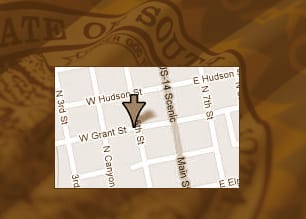There's a theory that some people see their lives flash before their eyes before they die, but when it does happen, handling the distribution of all the things they left behind hardly comes in a flash. In most cases, there are various items to disburse, old bills to pay, taxes to take care of, final medical and funeral related expenses to address and accounts to close.
If the person had a will when they died, these tasks may be a bit easier. But will or no will, all of these things need to get done. In order for this to happen, a "personal representative" (sometimes referred to as an executor) is appointed to distribute the estate to heirs and creditors.
Who Can Be Chosen
When a personal representative is chosen by the decedent, he or she is usually a spouse, sibling or adult child. If the decedent did not choose a representative, other family members may reach a consensus on who should fill the role. If no one has been chosen, or if that person cannot serve, the court will appoint a personal representative.
There are some restrictions on who can serve. Generally, those under 18, those convicted of a felony and those who are determined to have a conflict of interest cannot serve in this role.
Where You Need To Start
If you've been chosen to serve as a personal representative, it may be hard to know where to start. Most people begin with gathering all of the belongings and settling all accounts of the decedent. The court should give you the appropriate documents to authorize handling the decedent's accounts. However, some items may need to be appraised in order to determine their value before they are distributed.
Settling Accounts And Bills
In most cases, a person's debts don't disappear upon death, and paying these off takes priority over giving money to heirs. Once it has been determined what a person left behind, things such as old bills, medical expenses, funeral expenses and various taxes need to be paid to clear the way for the rest of the person's assets to be distributed.
Distributing To Heirs, Charities And The State
Once the decedent's financial obligations have been fulfilled, the specific items and accounts can be distributed as indicated in the will, or according to state law if no will is available. If the decedent does not have heirs and has not named a charity he or she wished to support, his or her assets revert back to the state.
If the will is contested, the personal representative will need to address any concerns and will likely need to work with an attorney in order to clear up any inconsistencies.
Even the most straightforward estates can start to get complicated once all the details are examined. An estate or probate lawyer with experience in these manners can help keep you on track. In many cases, working with a lawyer will also speed up and simplify the process for all concerned.








No Comments
Leave a comment